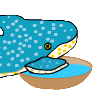|
Sun is also one of the most sincere, deeply felt Catholic novels ever written. Also, while Pale Fire is about writing, it's also about reading, interpretation; any aspect of artistic creation, you name it and Nabokov has something witty and profound on it in PF. That book stands astride the shift from modernism to postmodernism and from structuralism to poststructuralism. Since it's basically Choose Your Own Adventure: Literary Masterpiece version, it's fantastic for live-action reader-response experiments. It branches into chaotics, into new media studies, into neurocrit--what a great drat book. Oh, and Kinbote's repeated failure at identifying the source of the title is one of the best running Shakespearean jokes you'll ever find. Nabokov has a hell of a reputation already, but if anything he's still undervalued among academics.
|
|
|
|

|
| # ? May 10, 2024 03:42 |
|
elentar posted:[...] Kinbote's repeated failure at identifying the source of the title is one of the best running Shakespearean jokes you'll ever find. There's other context here, too. Timon was for some time a critical black sheep -- if you check, say, JSTOR for articles, you won't find much done between about 1920 and 1975. About the only debate on it from then is about authorship, which is a good sign that critics are trying to pass off a "weaker" Shakespearean piece as mostly the work of (in this case) Middleton or Chapman. Almost the same thing happened with Titus during the same time period (except with Peele instead of Middleton and Chapman). quote:Nabokov has a hell of a reputation already, but if anything he's still undervalued among academics. I don't know about undervalued, but he's definitely undertaught. I'm unsure why this is, but it's certainly a strange omission. Other writers from about the same period -- Arthur Miller, for instance -- are staples of even High School English.
|
|
|
|
Brainworm posted:
|
|
|
|
Brainworm posted:I don't even know what to say about Nabokov. I mean, just in terms of style, he's probably the single most influential Anglophone novelist of the 20th century -- with the possible exception of Hemingway. But I'ma suggest that Hemingway holds his place in the American canon -- you know, as the novelist -- largely by dint of Nabokov's reworking of him. I'm not fully understanding the idea of a literary work as a response to a prior work. Here you say that Hemingway is only the novelist because of Nabokov, but you're predicating Nabokov's greatness on his work being a response to Hemingway. That is, part of what makes Nabokov's work so great is that he's responding to Hemingway. If Nabokov weren't responding to Hemingway then wouldn't Nabokov's work be less great? Would Nabokov be the guy if a Nabokov II came along and reworked Bend Sinister? Conversely, if we only really understand Hemingway because of Nabokov and Nabokov is more influential then how is it that Hemingway became the novelist instead of Nabokov? I wonder if the answer to all this really might is just that Lolita gives people the heebie-jeebies.
|
|
|
|
How would I go about thinking of ideas for a short story assignment I have due for an English class? It can be about anything, first/third person, anything.
|
|
|
|
DirtyRobot posted:As simplistic as it seems, could this not just be, "Well that's the sicko who wrote Lolita, and since that's banned we're not going to teach anything that he wrote!" And even though it might be easier now in [a good portion of] our society to bring him into the classroom, he's been out of it so long that, well, who is going to start? I'm doubtful to that since people like DH Lawrence get plenty of attention from academics even back in the day when it was more startling. Or even people like Ezra Pound get lots of attention even though he personally believed all that anti-Semitism when not many buy into Nabokov being a pedophile these days. And he was also a respected academic during much of his writing. I'm at a loss why he is undertaught though. So maybe it is just leftover damage from Hurricane Lolita.
|
|
|
|
builds character posted:I'm not fully understanding the idea of a literary work as a response to a prior work. Here you say that Hemingway is only the novelist because of Nabokov, but you're predicating Nabokov's greatness on his work being a response to Hemingway. That is, part of what makes Nabokov's work so great is that he's responding to Hemingway. If Nabokov weren't responding to Hemingway then wouldn't Nabokov's work be less great? Would Nabokov be the guy if a Nabokov II came along and reworked Bend Sinister? Conversely, if we only really understand Hemingway because of Nabokov and Nabokov is more influential then how is it that Hemingway became the novelist instead of Nabokov? That's a really good question, and I think the answer relies on my making a clearer distinction between the quality of a work (i.e. how "good" or "great" it is), and how that work articulates with (i.e. responds to, or is responded to by) other works. Most of the time, good discussions about canonicity have more to do with relationships between texts than an assessment of their quality. I mean, if anyone's saying Hemingway is "greater" than Nabokov (or vice-versa) they're starting a discussion that's off solid ground and unlikely to resolve. So canonicity, it's not about "how great." That's a fool's game. It's about building a series of texts that are a sort of conversation among authors over time. So the issue with Nabokov and Hemingway, it's not about good or better. It's about how we as present day readers see these texts participating in traditions. What Nabokov has done in reworking The Sun Also Rises has made it part of a contemporary tradition of Farcical (American) War Novels -- a conversation between Nabokov, O'Brien, Coetzee, Heller, etc. I mean, you can always make a case for reading Hemingway because he's good. But, in terms of caononicity, you need to make a case for reading him because he's part of a conversation. Other authors who've tried to have that conversation with Sun Also Rises -- say, Hunter S. Thompson with The Rum Diary -- they've basically failed. And with Sun almost a century old and attitudes toward World War having shifted a great deal (no small thanks to WWII, the Cold War, the end of the Cold War, and the rise of international terrorism) it's fair to say that Hemingway's war novels are increasingly distant. Unless they get rewritten, as by Nabokov, it's tough to make a case for their continual relevance. We see the same thing in Renaissance Drama, for instance, with Shakespeare and Marlowe. Marlowe's an important author, and still widely read, not because he's "good" but (a) because his influence on Shakespeare is so pronounced and (b) everybody and their loving mom rewrites Shakespeare. So Marlowe's part of our modern canon while Peele, Greene, Marston, Dekker, and Heywood aren't. Fletcher isn't, either, and he was Shakespeare's apprentice and heir to his place in the King's Men. That's not a case of "better" or "worse." In my mind, Marlowe's corpus, small as it is, beats the hell out of half the plays that Shakespeare set to paper. But that's not really the point. The point is that, quality aside, Hemingway plays the Marlowe to Nabokov's Shakespeare. With Bend Sinister being constantly rewritten, or at least shaping modern war novels, Sun has a clear canonical place. Without that, it's more difficult to make a case for the text.
|
|
|
|
Is "I'm fine" a gramatically correct answer to "How are you?" What about "How are you doing?"
|
|
|
|
network.guy posted:Is "I'm fine" a gramatically correct answer to "How are you?" What about "How are you doing?"
|
|
|
|
Trakke posted:How would I go about thinking of ideas for a short story assignment I have due for an English class? It can be about anything, first/third person, anything. Funny. My Freshmen are right now in the middle of exactly such an assignment. But I'ma give you the same exercise I gave them. It's "what's the worst that could happen." It goes like so: Take something you do that everyone else does. Say, brushing your teeth. And imagine a thing that could go terribly, terribly wrong while you're brushing. Then, whenever you ask yourself what happens next, just choose the worst possible thing. So we'll start off easy. Maybe when you're brushing your teeth, the toothbrush splinters into a dozen razor-sharp plastic slivers that pop through any convenient, nearby soft tissue. So what happens next? Obviously, you go to the hospital. So what's the worst possible case? Maybe you're thinking you get to the hospital dead. No. That's not bad enough. Maybe it turns out that the kind of plastic your toothbrush was made of, it's actually usually used to make butt-plugs. The doctor who's pulling these plastic slivers out of your mouth, he's been pulling them out of people all week. And everyone has a story. I sat on a Christmas tree ornament. I fell into a bag of Legos. I was brushing my teeth. But there have been memos out on these butt plugs for, like, forever. This doctor, he knows where those plastic slivers in your mouth came from, and he writes it on your chart. So what happens next? Nurses stop talking to you. Breath mints start showing up on your hospital pillow. Then maybe your parents' insurance company drops you from their policy, and you know they've got to have explained why. Maybe a letter, maybe a phone call, maybe an agent sits Mom and Dad down and tells them this isn't their fault. Kids get to college, they start bad habits. So you go home for Thanksgiving break, expecting rage and tears. So what happens next? Your parents don't say anything. You go home for Thanksgiving dinner, the grandparents and the cousins are all there, and nobody says a word. Nothing the next day either. Or the next. You go home for Christmas or whatever, and still nothing. You go back for one Summer, than another, and they come to graduation. Still nothing. Maybe you get married, and at the rehearsal dinner Dad gets drunk, grabs the mic, and makes a forty-minute toast. Still nothing. Then you look at whoever you're marrying, and you wonder whether Mom or Dad ever pulled them aside in confidence. Let them know what they're getting into. What they can expect from the honeymoon. Maybe they look nervous. Maybe they look eager. You get the idea. Just keep thinking of the worst things that could possibly happen, and you'll have a ripper of a story.
|
|
|
|
Brainworm posted:Funny. My Freshmen are right now in the middle of exactly such an assignment. he might think i'm hosed up, you sure it's safe to hand this in?
|
|
|
|
Trakke posted:he might think i'm hosed up, you sure it's safe to hand this in? Of course it's not safe to hand that in. It's not yours. Just come up with a series of worst-that-can-happens that are buttplug-free. There's got to be something terrible that can happen to you that doesn't involve a butt plug.
|
|
|
|
Quantify! posted:Wait, Brainworm is an ESL professor?!?! Oh man I'm so confused. Um. As am I also. network.guy posted:Is "I'm fine" a gramatically correct answer to "How are you?" What about "How are you doing?" It seems to be. "I'm fine" has a relatively narrow and contextually-sensitive set of meanings. Girlfriend might use it in some confusing ways, but that's not really a grammar issue.
|
|
|
|
Brainworm posted:Um. As am I also. is "can you help me?" grammatically accepted now when asking someone for help?
|
|
|
|
Trakke posted:is "can you help me?" grammatically accepted now when asking someone for help? Ouch. Right in the feelings. What I'm saying is, I'm glad to give you ways to come up with ideas. But I definitely can't lay out a storyline, have you ask whether you can use it, and then tell you that that's OK. Especially when I know that you're using that storyline for an assignment. So if you want to use a "worst that could happen" model, go for it. Mine always end up a little hosed up, which is probably why I only sell stories to journals that come out of copy machines. But "worst that could happen" stories don't have to be that way. They more often end up being tales of, say, realistic psychological stress. Even petty stress. So if you want ideas or situations to start with, here's a pile. They're general enough that I'm not doing the work for you. You just have to figure out what happens next (and you can always do that with worst-that-could-happen stuff): quote:You're driving to pick up a date and you realize that your car smells like rear end, and has for months if not years. You've just gotten so used to it you can't tell. quote:You gradually begin to suspect that someone is watching you while you sleep. quote:The pants that fit you when you took them off last night are way too tight this morning. quote:You put on your Fall jacket and find a bunch of year-old receipts in the pockets. Two of them are for large purchases from stores you've never heard of in towns you've never been to. quote:No matter what you do, you can't stop picking at a small pimple on your chin. After several hours, it becomes a small sore. The next morning, it occurs to you that a spider may have laid eggs in that sore while you were asleep. OK. So those got worse as I went. But you get the idea. If you want an idea engine that leads to less hosed-up stuff, a really popular one is "when I first." Any sentence beginning with "when I first" suggests you felt one way about something and feel differently about it now. How that happens, that's the essence of your story. Witness: quote:When I first saw the Dukes of Hazzard I was more interested in the General Lee than Bo and Luke or Daisy. [Story follows about how I bought a replica of the GL and quickly became disillusioned with jumping it across rivers / about how I got more interested in Daisy, then Bo and Luke, and then Daisy, Bo, and Luke]. quote:When I first met Dan, I couldn't tell whether he was the biggest geek I'd ever seen or the coolest person I'd ever met. [Story follows about how I discovered Dan was some third thing -- the most flamboyant Dungeon Master in Wayne County, a remarkable confidant, etc...] quote:When I first started reading, I thought the best thing that could happen to a story was robots. [Story follows about how I learned to hate/love robots after they traveled through time to kill my mom.] Easy. If you want ideas, just keep making up sentences that start with "when I first." You'll get an idea that builds a solid story every time. You can even build in some autobiography. Like so: quote:When I first started smoking, I thought it would ____________. Now, I know it does _____________. quote:When I first started dating, I thought it would be like _____________. Actually, it's like _____________. quote:When I first wanted to be an astronaut/college student/engineer/intellectual/writer/porn star, I thought it would be like _____________. Really, it's like _____________. Seriously. Ideas, especially ideas that frame stories, they're the easiest thing in the world. All you need's an engine to stamp them out. So give it a shot, and I'll be glad to help you with whatever you come up with.
|
|
|
|
Brainworm posted:Ouch. Right in the feelings. thank you goon.
|
|
|
|
Pontius Pilate posted:I'm doubtful to that since people like DH Lawrence get plenty of attention from academics even back in the day when it was more startling. Or even people like Ezra Pound get lots of attention even though he personally believed all that anti-Semitism when not many buy into Nabokov being a pedophile these days. And he was also a respected academic during much of his writing. I'm at a loss why he is undertaught though. So maybe it is just leftover damage from Hurricane Lolita.
|
|
|
|
What's your opinion on using their as a gender neutral, singular substitute for he, her, his, etc. Example: Why did your friend go back inside? They forgot their car keys.
|
|
|
|
semicolonsrock posted:What's your opinion on using their as a gender neutral, singular substitute for he, her, his, etc. Example: Why did your friend go back inside? They forgot their car keys. Generally, I think it's fine. For one, it's common use, so "his" seems to cause confusion more often than "their" does. "Send each student to his locker" might mean closer to "send all the male students to their lockers" than "send the students to their lockers," for instance. And the justified and prevailing sentiment is that using "he" is insensitive to the gender politics of the last century or so. I'm no great fan of "womyn" or "herstory," but "their" for "his" seems an inoffensive substitution, especially since it's already in common use. So my practice is to use gender neutral writing that, if possible, is grammatically conventional (e.g. "send the students to their lockers" rather than "send each student to their locker"), and only resort to using "their" or "his" when clarity's on the line.
|
|
|
|
Alright I'm loving lost here. I need to create a story with a PURPOSE...can that purpose be to entertain or is my teacher looking for something like loving coming-of-age novel about childhood values transitioning into adulthood values hiding behind a metaphor of a loving race? I can't think of ANYTHING; I'm staring at a blank sheet of paper with NO ideas. Help me here.
|
|
|
|
Has your teaching style ever been influenced by "academic" writing on education? I'm thinking of essay's like Walker Percy's "The Loss of the Creature", whoever's "The Banking Concept of Education" etc.
|
|
|
|
Trakke posted:Alright I'm loving lost here. I need to create a story with a PURPOSE...can that purpose be to entertain or is my teacher looking for something like loving coming-of-age novel about childhood values transitioning into adulthood values hiding behind a metaphor of a loving race? I can't think of ANYTHING; I'm staring at a blank sheet of paper with NO ideas. Help me here. Why does he need to help you with your homework? He's not your personal idea-factory, and he's already given you a lot of help. Presumably, your teacher sounds like she wants a story that isn't just "What I Did Last Summer." Take something that's real and run with it. Write a character modeled after a friend you know who almost committed suicide or something. Experiment.
|
|
|
|
Doran Blackdawn posted:Why does he need to help you with your homework? He's not your personal idea-factory, and he's already given you a lot of help. I'm asking him for help because, guess why - he wants to - hence this thread. What I"m more leaning towards is that I've never learned how to write a story before. I know they are loosely related to grammatically correct essays, but there are so many rules that appear to be broken when writing a story that I'm not used to.
|
|
|
|
Hey so anyone who was interested in the discussion a few pages back about how this thing we call "research" has changed immeasurably over the past decade ought to check out the mini-symposium in the October 2007 PMLA (it's in your nearby campus library) on "Database as Genre." It's kicked off my Ed Folsom talking about the Walt Whitman Archive, and draws responses from Jerome McGann and Kate Hayles among others. It is worth the
|
|
|
|
Trakke posted:I'm asking him for help because, guess why - he wants to - hence this thread. What I"m more leaning towards is that I've never learned how to write a story before. I know they are loosely related to grammatically correct essays, but there are so many rules that appear to be broken when writing a story that I'm not used to. You are overthinking this and assuming that anytime an author starts writing they have some sort of encompassing point or purpose to their writing. This is sometimes true, but sometimes the only point is that they have a story they want to tell about a world and characters they want to explore. What Brainworm is trying to tell you (correct me if I'm wrong) is that to start, all you need to do is start with a prompt. That is, one or two sentences that set a scene. It could be as average as you waking up late for class. Then, you go from there - imagine what might happen and write about it. Brainworm's strategy is to think of the worst possible thing that might happen each time because that creates conflict and distress which are more interesting to read about. Which would you rather read about? "I woke up late late for class, struggled into my clothes and ran there. I arrived a couple minutes late but no one really noticed and my day continued as usual." or "I woke up late for class and smashed my eye into the corner of my dresser while hopping around putting my socks on. I couldn't open my eye very well so I accidentally hit someone on my bike on the way there. The person I hit was a key witness on his way to court to testify on the innocence of a man arrested for murdering and eating seventeen babies." I'd rather read the second one, myself. Anyway, my point is stop thinking about having some weighty purpose and just write a story you think seems interesting. The meaning flows from a good story, not the other way around.
|
|
|
|
z0331 posted:You are overthinking this and assuming that anytime an author starts writing they have some sort of encompassing point or purpose to their writing. This is sometimes true, but sometimes the only point is that they have a story they want to tell about a world and characters they want to explore. I think this is just about exactly right. You start by writing a story, a bunch of events and characters that are going to keep a reader interested because they're interesting. Once you've got that, you go back and strengthen whatever elements of that story are carrying what you think are the most important loads. There's a kind of thinking about fiction that new writers sometimes have -- I know it well because I had it when I was a new writer -- that a story is only worthwhile if it's ideological. If it makes some kind of social or political or philosophical point. And that's bullshit. I mean, Shakespeare wrote close to forty plays, and not one of them works because it's grinding an axe. So tell an interesting story. That's the foundation. Anything else, you build on top of that, and later.
|
|
|
|
Trakke posted:I'm asking him for help because, guess why - he wants to - hence this thread. What I"m more leaning towards is that I've never learned how to write a story before. I know they are loosely related to grammatically correct essays, but there are so many rules that appear to be broken when writing a story that I'm not used to. Basic plot outlines do differ from the basic structure of an essay but rules aren't broken, they are just different. Here's a basic summary of a plot Exposition - Introduce your characters and the setting. Is it a sunny day? Is it in a city? How many people are involved? WHat do they do? Inciting Incident - The first clue in the story that something exciting is going on. Is there an explosion? Does your toothbruch break? Does a mysterious mist start to descend on the city. obscuring all buildings, plants and animals? Rising Action - This is what builds tension in your stories. It contains several conflicts or difficulties for the character that lead directly to the most exciting point, the climax. In Stephen King's, "The Mist", this takes the shape of giant, extra-dimensional bugs, a crazy religious lady preaching the end of the world, and the death of several military boys with apology notes pinned to them. In Brainworm's example, it's the trip to the hospital, the discovery that it's butt plug material, breath mints on your pillow, and the revelation to your parents that you like to eat butt plugs. Climax - The most exciting point in the story where all tensions, conflicts, and incidents in the story come together. Going back to "The Mist", this is the confrontation between the religious cult and the people trying to escape the supermarket because those people have determined that their chances are better against the extra-dimensional bugs than with the humans they are holed up with. In Brainworm's story it's your realization that everyone at your wedding, potentially even your new spouse thinks you have a butt plug fetish. Falling Action and Denouement - The aftermath of the climax leading to the final resolution. In the Mist, it answers these questions: Do the people escape? Do they survive? Where do they go from here? In Brainworm's example, is your spouse excited? Disgusted? How does it impact your future married life? You are really stressing out over this and because of that, you are probably giving yourself writer's block. Sit down with a sheet of paper and a pen and spend 15 minutes writing anything you can think of. Write about your day if it helps. Then throw in some twists. Think about your favorite stories. Where did you feel the most excitement? What happened before hand to lead to that point? What happened after that point?
|
|
|
|
BrideOfUglycat posted:Basic plot outlines do differ from the basic structure of an essay but rules aren't broken, they are just different. i have a basic, rough idea of a story and have about 2 paragraphs done; would you give me your e-mail, please, andd mind critiquing it? brainworm - check your e-mail man
|
|
|
|
semicolonsrock posted:Has your teaching style ever been influenced by "academic" writing on education? I'm thinking of essay's like Walker Percy's "The Loss of the Creature", whoever's "The Banking Concept of Education" etc. A bit. Most of the academic work I read on education has to do with writing and working with writers. So Peter Elbow, David Bartholomae, Nancy Grimm, Lad Tobin, and so on, they're who I think about when I think about writing classes. Most other writing on education, though, is broad enough that it's off really solid ground. Or it's been so deeply internalized in modern classroom practice that it's not terribly useful Friere ("Banking Concept") is a good example of both. I mean, I can't imagine that any competent 21st century professor seriously looks at the classroom chiefly as a space for delivering information, or gauges his or her success by how well students recall what's basically field trivia.
|
|
|
|
Trakke posted:brainworm - check your e-mail man I got back to you a bit ago. Right now, things are running heavy enough over here that I'm behind on anything that doesn't happen in the classroom.
|
|
|
|
elentar posted:Hey so anyone who was interested in the discussion a few pages back about how this thing we call "research" has changed immeasurably over the past decade ought to check out the mini-symposium in the October 2007 PMLA (it's in your nearby campus library) on "Database as Genre." It's kicked off my Ed Folsom talking about the Walt Whitman Archive, and draws responses from Jerome McGann and Kate Hayles among others. It is worth the I can second that -- it's a good piece. Ad you don't even need to go to the library to get PMLA. Any of your English professors, they'll have a copy sitting around. As an MLA member, you get a PMLA subscription whether you want it or not.
|
|
|
|
Trakke posted:i have a basic, rough idea of a story and have about 2 paragraphs done; would you give me your e-mail, please, andd mind critiquing it? Yeah, I'll look it over. kittencaboodle@gmail.com
|
|
|
|
Brainworm posted:A bit. Most of the academic work I read on education has to do with writing and working with writers. So Peter Elbow, David Bartholomae, Nancy Grimm, Lad Tobin, and so on, they're who I think about when I think about writing classes. So who do you lean towards--Elbow or Bartholomae? Also, do you go to the CCCCs, cause we should catch a drink if you'll be there. It's in bourbon country this year!
|
|
|
|
The Last 04 posted:So who do you lean towards--Elbow or Bartholomae? It depends on who I'm teaching. At my college, and when I was teaching at other something-like-elite colleges, Elbow is the guy to innovate on. But when I was in grad school and adjuncting at community and state colleges, Bartholomae was a better place to start thinking through my classroom practice. quote:Also, do you go to the CCCCs, cause we should catch a drink if you'll be there. It's in bourbon country this year! I'm going to try to go this year, but I don't think I'll be presenting. So I'm totally up for figuring that out. I was in Louisville over the Summer for a while. Absolutely worth the trip, conference or no.
|
|
|
|
I'm looking for some recommendations on good children's books. My oldest (daughter) is seven, and I've a couple boys that are still peeing in their pants. I've been doing some chapter books with my daughter, and we've hit some of the usual suspects (Wind in the Willows, Watership Down, Little House in the Bog Woods, etc.) We've got a fair library of picture books, with a handful of readable selections amongst a behemoth stock of crap. I'd love some recommendations for both varieties. My only request is that the book can be read ad nauseum without too much nauseum. Kids have no greater love than stomping on trodden ground. edit: When I say both varieties, I mean good picture books and good chapter books. I've all the crappy books I can handle. Deadline Wolf Run fucked around with this message at 04:41 on Sep 13, 2009 |
|
|
|
Norton Juster's The Phantom Tollbooth. Seriously, it's one of the best children's books ever written.
|
|
|
|
Bel_Canto posted:Norton Juster's The Phantom Tollbooth. Seriously, it's one of the best children's books ever written. My favorite as a kid, so seconded.
|
|
|
|
Trakke posted:What I"m more leaning towards is that I've never learned how to write a story before. I know they are loosely related to grammatically correct essays, but there are so many rules that appear to be broken when writing a story that I'm not used to. You might try looking at Kurt Vonnegut's eight rules for writing a short story. He's done pretty well for himself, after all. The rules seem to make sense together and in the context of good stories I've come across, and they aren't all entirely self-evident either. Kurt Vonnegut posted:
Xephero fucked around with this message at 17:15 on Sep 13, 2009 |
|
|
|
Mr. Wonderful posted:I'm looking for some recommendations on good children's books. Clive Barker's 'Thief of Always' and Neil Gaiman's 'Coraline'. Amazon lists both as 'ages 9-12', but if you're reading them together with your daughter you should probably be fine. They're basically modern fairy tales, and I think both books have editions with lots of pictures (Coraline might even exist in graphic novel form, come to think of it).
|
|
|
|

|
| # ? May 10, 2024 03:42 |
|
Xephero posted:kurt vonnegut But... but! According to bookworm, kurt vonnegut's talent isn't in short stories, because he sacrifices the intricate depth he weaves in the longer form pieces in order to create a concise narrative, and, in the process, becomes unduly simplistic (allegedly)... For all we know, he followed those rules To his RUIN. I think it's best if we don't poison this literary seed with the weed-killer of a writer who's short story themes are simplistic. In fact, it would be best if we stop offering suggestions. The only way he's going to write anything is if people stop offering suggestions, it gets to be the period before the assignment, he's near a computer, and desperately half-plagiarizes a Warhammer 40k short story about a tank that thinks it's alive because its mechanics pray to it when they want to shoot aliens. Vibrant. Realistic. Characterization.
|
|
|




















